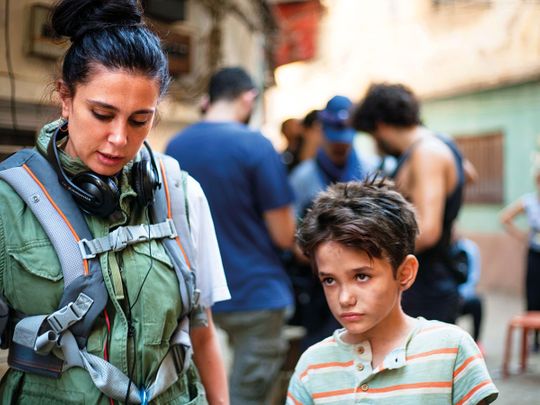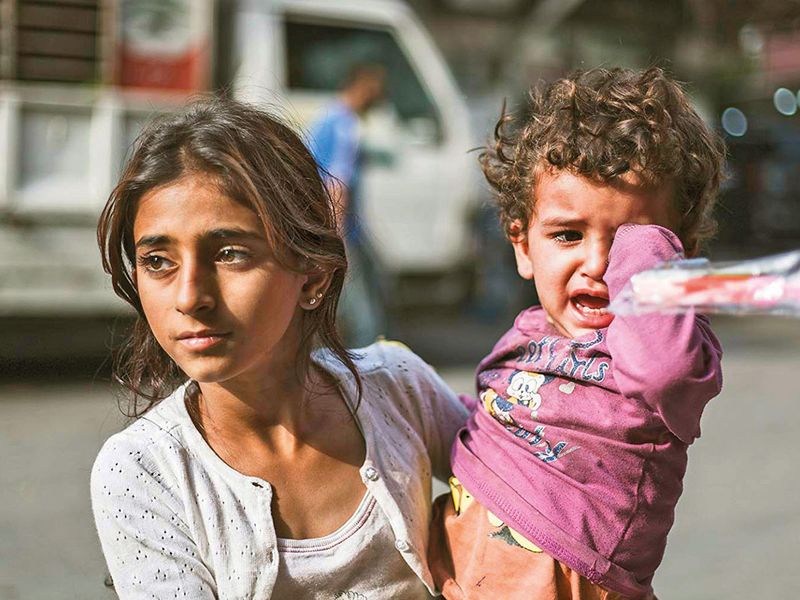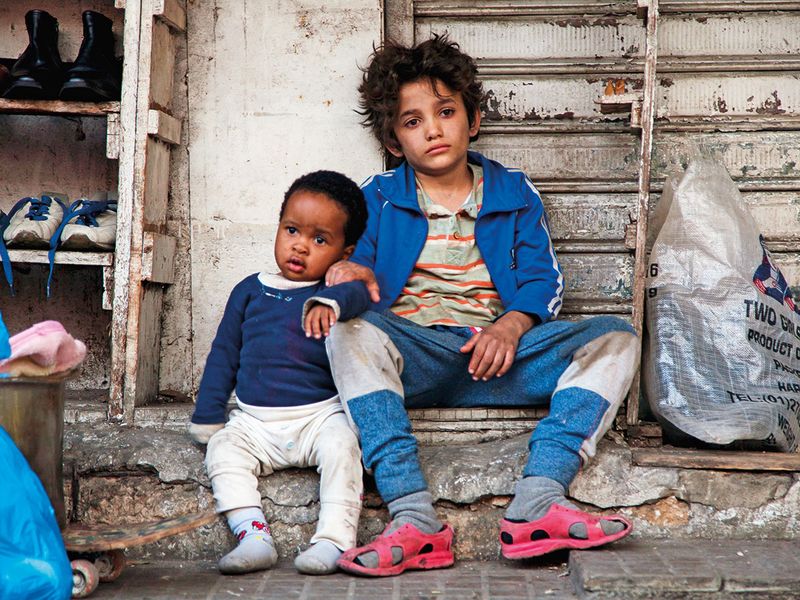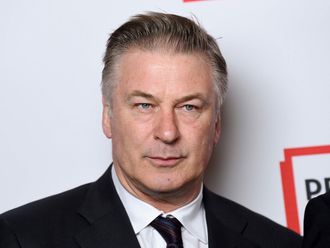
Arabs in cinema are having a moment in Hollywood, and no one is more aware of that than filmmaker Nadine Labaki, whose film ‘Capernaum’ made history as a Best Foreign Language Film nominee at the 91st Academy Awards this year.
Labaki, the first Lebanese woman to be named in the category, was surrounded at the ceremony by Arabs she felt she knew her whole life: Egyptian-American Rami Malek, who won Best Actor for ‘Bohemian Rhapsody’, and Syrian director Talal Derki, nominated for his documentary ‘Of Fathers and Sons’.
“You feel like there’s a secret code between us — living this identity, living this turmoil together, living this curse together, in a way. There is something that’s uniting us that is very, very strong,” Labaki told Gulf News tabloid!.
‘Capernaum’ is Labaki’s third directorial feature, the haunting tale of a 12-year-old boy who sues his parents for birthing him into a miserable life. Three years of research went into creating an ultra-realistic portrait of despair on the streets of Beirut.
“What ignited this whole thing is really the need to become the voice of those kids, because I believe that they’re paying the highest price for our faults as adults, our conflicts and our wars. They’re being dragged like puppets into our stupid decisions and failing systems,” said Labaki.

She spent time between Lebanon’s courts, prisons and juvenile detention centres, interviewing children, parents, lawyers and judges. She examined the problem from every angle.
“We shot for six months, and this is where you dig even deeper. You’re practically living in the sewers with those people. You’re living there with the haunting sound of children crying the whole time. Children getting beaten up, neglected, left alone in their houses,” said Labaki.

Going home to a warm bed after a day of shooting was difficult, though Labaki didn’t feel the need to emotionally detach from her subjects. On weekends with the family, however, she often had to force herself back to attention.
“My husband was like, ‘Where are you?’… I’m not there anymore,” said Labaki.
‘YOU FALL IN LOVE’
A handful of Labaki’s crew members ventured into Lebanon’s more dangerous neighbourhoods to find ‘Capernaum’s’ perfect cast. The film employed street children and non-professional actors, including the compelling Syrian refugee Zain Al Rafeea as the lead.
“They would give me everything they shot during the day, and I would watch everything, all the interviews. At some point, somebody just [stands out]. There’s this chemistry, this charisma, this wisdom, those eyes, this self-expression. You fall in love with the character,” said Labaki.
Nothing about this, nor the shooting process that followed, was traditional. Labaki’s husband Khalid Mouzanar both composed and produced the film, giving Labaki more room to experiment.
“We didn’t have money. We started with nothing. We mortgaged our house — he mortgaged our house without even telling me, in order to make this film happen,” said Labaki.
“We started working without knowing when we were going to stop. When will this film end?”
It took two years to edit. There were hundreds of hours of footage to wade through, as the cast had improvised heavily in front of a lens that aimed to be as non-intrusive as possible.
“Normally, an actor would come to a set, he knows his lines, he knows his character, he knows what’s going to happen next and what happened yesterday,” said Labaki.
But on ‘Capernaum’, which breaks Hollywood’s golden rule of not working with children a dozen times over, it couldn’t work this way.
Labaki had to “provide space for [the children] to just be who they are, and not be afraid, and not be paralysed by the classical way of making films. You can’t expect to say action and then for them to be in the action.”
It helped that the film was created in a small bubble, with a cast and crew who Labaki considers to be her family.
“When I tell you it’s homemade, it’s really homemade. We live on the third floor and we rented the first floor of our building, and this is where everything happened. My cinematographer, my editor, lived in this apartment. This is where we did the pre-production and post-production. Khalid did the music, like, 30 seconds away from this in his own studio,” said Labaki.
The result was a haunting and intimate portrayal that felt too real to be called fiction and too painful to be accepted as reality. But its subjects were indeed living the same life off-screen.
Thanks to the film, they have all been taken off the streets, with lead actor Al Rafeea and his family relocated to Norway, and enrolled into schools.
“They’re still in my life. Zain is still in my life. I’m following up with all the families. We’ve created a foundation to be able to sustain them, to be able to put all the kids in schools. You feel, in a way, responsible. And you don’t have to forget and move on,” said Labaki.
THE NEXT NEED
At the 2018 Cannes Film Festival, ‘Capernaum’ won the Jury Prize and received a 15-minute standing ovation from the audience — one of many accolades the film would collect.
“In order to be there, and recognised on such a big level, by people like Oprah, it’s like it’s too good to be true,” said Labaki.
Arab cinema is on the map, according to Labaki, and there’s no going back or stopping the many voices that are emerging now.
“We have been so persecuted and so cursed and in such a state of continuous turmoil and conflicts and problems. We have so much to say,” said Labaki. “For me, it’s as if the fate of the whole world is defined in this region.”
Labaki is unsure what topic is going to take over her consciousness after ‘Capernaum’, or what the ‘next need’ will be.
“I’m just going to wait for it,” she said.
QUOTE/UNQUOTE
Nadine Labaki on Yordanos Shiferaw, who plays the role of Rahil, a single mother from Ethiopia with falsified papers: “I’m so proud of her. I was proud of her every single day when I was shooting and I was all the time in awe of her, because she’s been through so much in her life. She’s been an orphan since she was a kid. She had to take care of her siblings. When she grew up, she ended up in Lebanon, living in very difficult circumstances. She ran away from her employers a few times and was living illegally in the country, invisible. So she’s been through so much, and it showed from the moment I saw her in the casting interview. I knew there was something more … She’s not acting. She’s just reacting with her own past, and her own personality and her story.”
*Capernaum is out in UAE theatres on March 14. It is also showing at Cinema Akil starting March 15.













